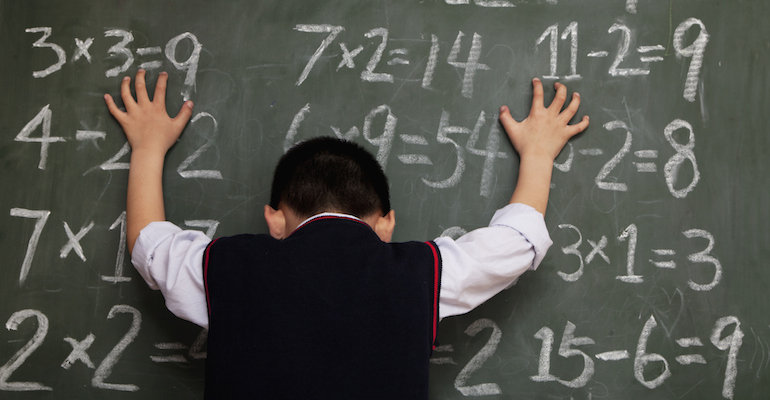Let’s say you have a daughter, adopted from China. She’s struggling with math, but she isn’t getting the help she needs. What’s up?
It’s possible that your daughter’s teacher may have exaggerated expectations for her because of a positive stereotype. They may seem complimentary, but positive stereotypes — African-Americans are great athletes, Hispanics are fantastic dancers, Asians are good at math, and so on — can be as damaging as stereotypes that label groups lazy, stupid, loud, or aggressive.
A client of mine faced something similar. At a parent-teacher conference, this mother heard that her son, adopted from South Korea, was doing great in reading. My client was surprised — she knew he couldn’t read well because she often had to help him sound out simple words.
When she brought this up, she was dismissed, as if she did not know her own child. Finally, she got the teacher to agree to have her son tested. The test results showed the mother was right. Her son was not able to read, but he was great at memorizing words. The teacher’s response: “I just assumed he was smart, they usually are….”
To determine whether your child’s teacher is making a fair estimate of her potential, ask the teacher why she’s drawn this conclusion. If she can’t back up her opinion with standardized test scores or other concrete evidence, ask her how many other students in her class are Asian, and ask her to describe them. Does she lump them together as great students? Or does she talk about them individually, recognizing the strengths and weaknesses of each? Then ask about students of other ethnicities. If she overgeneralizes, point this out. You want her to see how her assumptions can harm your child and others. She’ll never address your daughter’s educational needs if, blinded by a stereotype, she can’t see them.
Years ago, I spoke about stereotypes at a culture camp for adoptees. Some of the children said that stereotypes about their ethnic group did not apply to them, but others were afraid that the stereotypes actually did. Many stereotypes have a kernel of truth in them — there may be some people in a given racial group who can be described in a general way. But after a frank discussion, both groups of campers came to understand the problem with stereotypes: They fail to recognize that we are all individuals and that we have the right to be treated as such.
What You Can Do
While it’s easier to recognize and defend our children against negative stereotypes, it’s important to shut down positive ones, too, since they’re just as harmful. Presented with a list of expectations, good or bad, kids believe that they must live up to them or disprove them. For many children, this causes great pressure, which can lead to depression, aggression, paralyzing shyness, social anxiety, or fear of failure. What’s worse, a child’s true gifts will go undiscovered if no one notices them.
We don’t like to admit that we stereotype people, but we all do. Our brains must categorize information to process it; unfortunately, we do the same thing with our thinking about people. It’s easier to file people under a label and feel that we understand them than to take the time to get to know them. The trouble comes when we don’t discard a label after meeting someone who doesn’t match the stereotype.
Take away the power of stereotypes by explaining them — the good and the bad — to your child. Then discuss all the politically incorrect ones you can think of — yes, endure the awkwardness — and pick them apart. Show how silly they are — laugh about them. But don’t ignore them. That’s when they’re most powerful.



